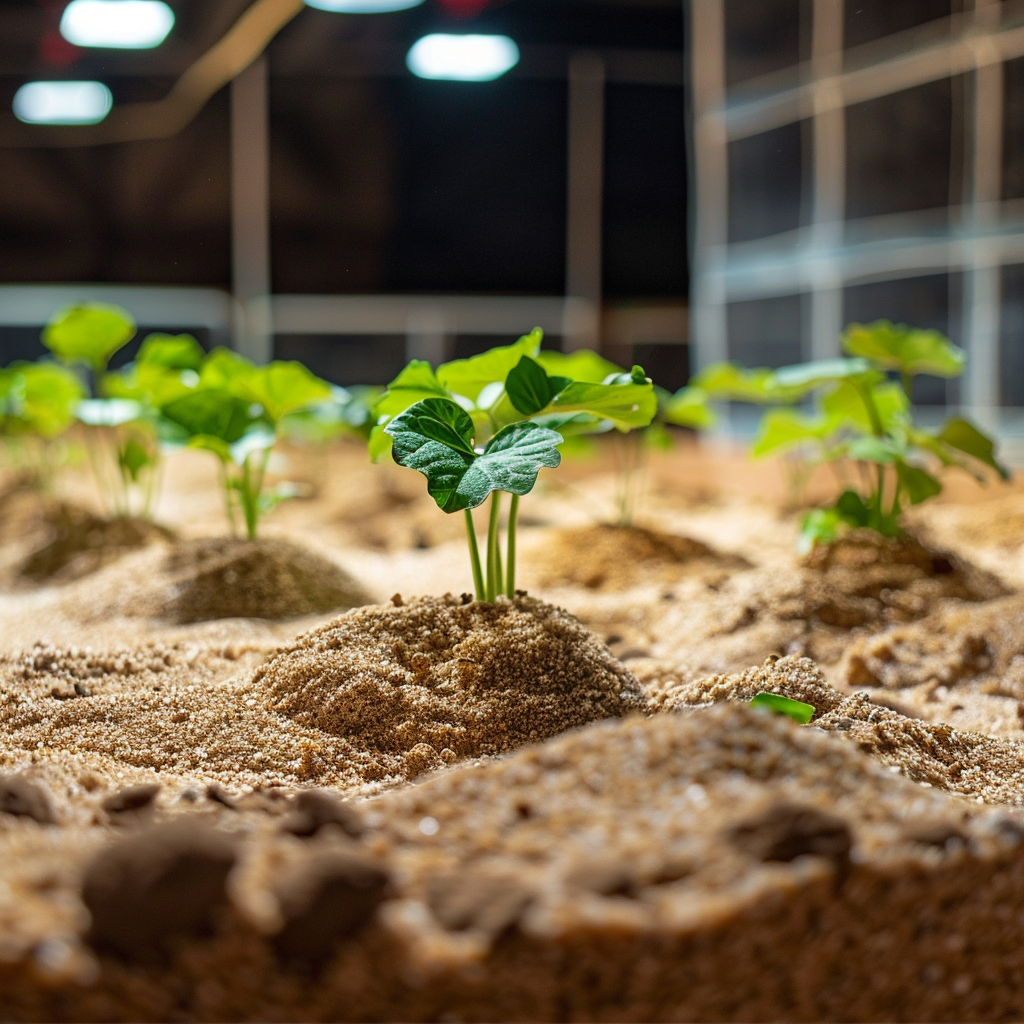
Breathable Sands: A Solution for Urban Heat Islands and Food Security in the UAE
Breathable Sands: A Solution for Urban Heat Islands and Food Security in the UAE
Urban heat islands are areas of a city that are significantly warmer than their surrounding rural areas, due to the concentration of buildings, roads, and other infrastructure. This phenomenon can lead to increased energy consumption, discomfort, and health issues for city dwellers. Breathable sands, a type of porous pavement, offer a solution to combat the urban heat island effect by allowing water to percolate through it, reducing surface temperatures, and improving air quality.
In the United Arab Emirates (UAE), the issue of urban heat islands is particularly relevant due to the country’s desert climate and rapid urbanization. To address this challenge, the UAE is exploring the use of breathable sands in various applications, such as desert farming, water conservation, and green spaces.
A collaboration between South African and Beijing based companies has developed a patented breathable sand technology that provides selective permeability. This technology is based on surface-free energy, which is based on how solids react to the surface tension of liquids. By treating desert sand with this technology, a series of products, including pots, blankets, and tiles, have been created that connect the ground air while retaining water to prevent seepage.
In the UAE, efforts have been made to work with private farms and schools in Dubai via the Ministry of Education, providing landscaping services for villas, and introducing the technology in hypermarkets for individual use. The sand has shown promising results in growing peanuts, mung beans, black-eyed peas, mango, and lemon orchids in some farms in Abu Dhabi.
The UAE government is also taking steps to promote food and water security through innovative technologies. In a recent cabinet meeting, His Highness Sheikh Mohammed bin Rashid Al Maktoum, Vice President and Prime Minister of the UAE and Ruler of Dubai, raised the issue of working towards a self-reliant UAE in meeting its food and water needs. This vision aligns with the breathable sand technology, which repurposes an abundant local resource – desert sand – to be part of the solution rather than the problem.
The solutions offered are scalable, empowering large-scale implementation through government or agri-business intervention, as well as individual users who wish to reduce the environmental impact of their homes and communities. The breakthrough breathable sand technology utilizes low-value desert aeolian sand, creating a constantly evolving portfolio of high-value products. The applications include water purification, desert farming, water harvesting, construction, sand casting, sand oil, and more.
In conclusion, the use of breathable sands in the UAE offers a promising solution for combating urban heat islands, improving food security, and conserving water. By repurposing desert sand, the UAE can leverage a locally abundant resource to address pressing environmental and agricultural challenges. The government’s vision for self-reliance in food and water security, combined with innovative technologies like breathable sands, can contribute to a more sustainable and resilient future for the UAE.
Citations:
[1] https://thesustainabilist.ae/breathable-magic-sand-for-ending-uaes-food-water-deficit/
[2] https://www.ecomena.org/breathing-life-into-sand/





